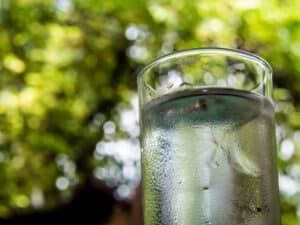What Is Solar Salt For Water Softeners?
Choosing the right salt for your water softener is important. It will affect the performance and longevity of your softener. The type of salt you choose will also impact the quality of your water. It’s important to shop around to find the right salt because lower-quality salt can cause problems. You may also want to check with your water softener manufacturer or a trusted seller to see if they offer any discounts or money-off coupons.
(Searching in Google “water conditioning“? Contact us today!)

The best type of salt for water softeners is one that is 99.9% pure. This means that you aren’t risking your water softener from ‘bridging,’ which means that it will become insoluble. It will also mean that you’ll be able to eliminate more insoluble matter, such as dirt and impurities. You’ll also be able to avoid problems such as “mushing” and rust stains.
Most salts are sold in either pellet or crystal form. Crystal salt is highly pure and dissolves easily. Pellet salt is generally less pure and can become hardened and mushed if not used regularly. It can also cause salt bridges. Pellets may also contain additives, such as cleaners, which may be beneficial to your softener.
There are two types of salt that are commonly used in water softeners: pellets and crystals. Pellets are generally more expensive than crystals. Pellets are also larger in size, which helps prevent salt bridges. They’re also the best choice for households with high water usage. If you don’t need to regenerate your softener frequently, a pellet form of salt might be the best choice for you.
Crystal salt is also good for households with below-average water consumption. It’s also a good choice for water softeners with twin tank systems. Its purity is typically greater than 99.5% sodium chloride, which means it’s less likely to cause “mushing” or “bridging.” However, it’s still best to use crystal salt only as a last resort since it’s more expensive than other salts.
The most common type of salt used in water softeners is pellet salt. Pellets are made from mined salt, which is then processed to form pellets. The best type of pellet salt is one that is made from potassium chloride, which is 99.9% sodium free. This type of salt is usually more expensive than rock salt, but it is also the purest. This is good news for those who have dietary restrictions or are salt sensitive.
Pellet salt also typically leaves less residue in the day tank. This is especially useful for households that don’t use their softener very often. However, it can be difficult to clean out the pellets after they’ve become hardened. This can cause issues like insoluble buildup in the day tank, which can make your softener work less efficiently.
Solar salt is another option for water softeners. The process of making solar salt is similar to making pellets, except that solar salt is manufactured using renewable energy sources. The process involves flooding large vats with brine and then letting it evaporate. Solar salt has a higher solubility level than pellets, but it may not work well in high-hardness water.

